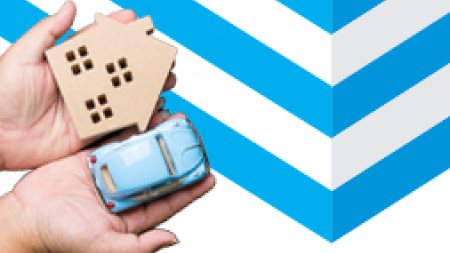Many South Africans are struggling to make ends meet and are looking for ways to cut back on expenses. Reviewing your insurance costs could make a significant difference to your disposable income.
“There are some ways you might be able to reduce your premiums without reducing the quality of your insurance cover. In today’s digital world, there’s more transparency about costs and service, helping you to get the best deal,” says Ernest North, co-founder of Naked digital insurance platform.
He offers tips for getting the best price for an insurance product that suits your needs.
Research
The first step is to research the various insurance providers before deciding which ones to get quotes from. Reviews on Google, Hellopeter and Facebook will give you a good idea of how happy their clients are and whether they believe they’re getting good value for their premiums.
Multiple quotes
Ask at least two or three credible insurance providers for quotes. Digital insurance platforms will let you see the final premium upfront without speaking to or needing to negotiate with a call centre. You will get a final quote online in 90 seconds and be able to buy on the spot.
Make sure you provide the same identity number and personal details for all quotes.
Not all insurers have the same terms and conditions or offer the same benefits. Be sure to check and compare the following details to fully understand what you will be getting for your money:
- Is the excess you are quoted a single flat amount or a percentage of the size of each claim?
- Is the value of your vehicle insured for the retail, market or trade-in value?
- Is there a waiting period between the time you pay your first premium and making a claim?
- Benefits such as car hire or 24/7 emergency assistance.
- Can you save money by having your building, home contents and vehicle insurance with one provider?
Excess
The excess is the amount you pay each time you submit a claim while the insurer pays the rest. For example, if you claim R5 000 for damage to your vehicle, and your excess is R1 000, the insurer will pay out R4 000.
A lower excess means you pay a higher premium, and a higher excess means a lower premium. Look for the right balance between what you’re willing and able to pay if you need to claim and what you can afford to pay monthly in premiums.
Watch out for additional excesses that add extra costs when you claim. For example, you might need to pay an additional excess if a vehicle accident occurs after 10 pm, the driver is younger than 25, or your policy is less than a few months old. A combination of excess charges could add up to tens of thousands of rands more in costs if you do have an accident.
Reduce risk
There are a few simple ways to reduce your risks and thereby reduce your chance of claiming. Reduced risk will also keep your premiums to a minimum.
- Always park your car in a safe place and make sure it is locked. Never leave valuables like laptops, cell phones or clothing on car seats – lock them out of sight in the boot.
- Install burglar bars and an alarm at home.
- Put screen protectors on all cell phones and keep them in sturdy covers.
Keep in mind that the more you claim, the higher your premiums will be. For this reason, it’s advisable to avoid claiming for small losses – for example, theft of clothes off your washing line or minor dents and scratches on your car.
Flexibility
Make sure the insurance provider you choose can accommodate changes in your way of living.
For instance, you may buy a new smartphone or computer or move to a new home. You and your partner may both work from home and only use one car, but you don’t want to sell the second car. While you’re not driving as much as you usually do, you should ideally be able to pay less in premiums. With some insurers, you can pause your cover when you are not driving and save significantly.
You should look for a policy that allows you to easily change your address, cover a new car, or update the sum insured of your household contents. These days, it’s really easy to do all this online.
Review
Review your policies at least once yearly to ensure your cover is still right for you.
It’s a good idea to increase the value for which your home and household contents are covered to keep up with inflation and insure new items you have bought.
Vehicles generally lose value each year, so check your vehicle’s value annually and ask for accordingly reduced premiums.
Also, get alternative quotes when your insurer renews your policy and increases your premiums.
Writer: Sarah-Jane Meyer





